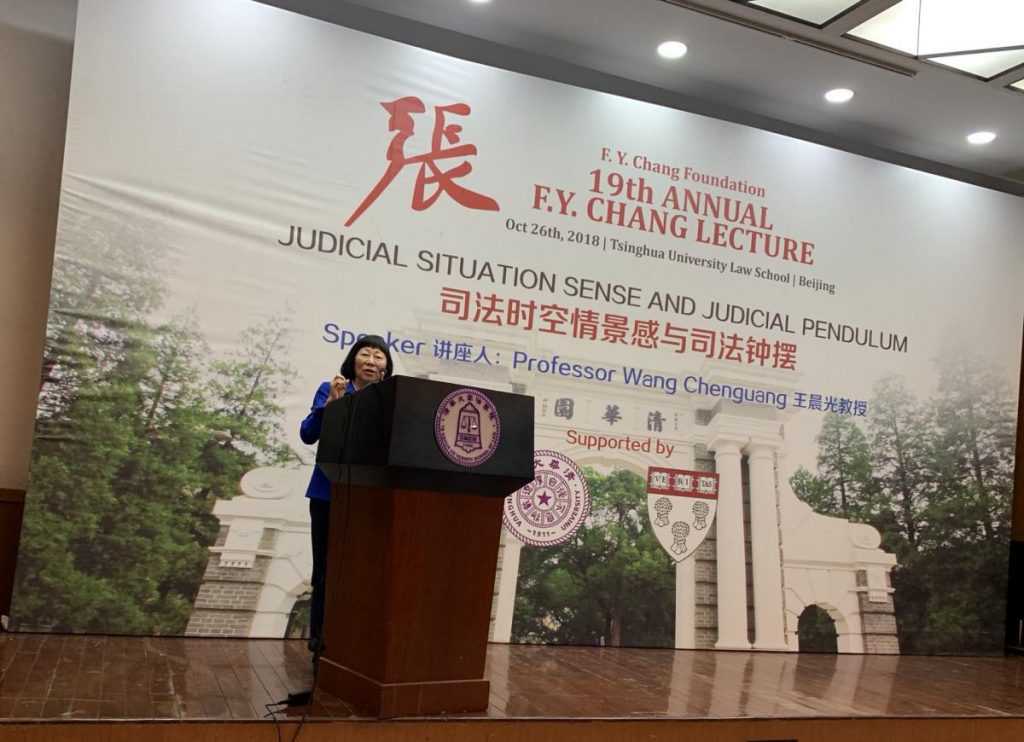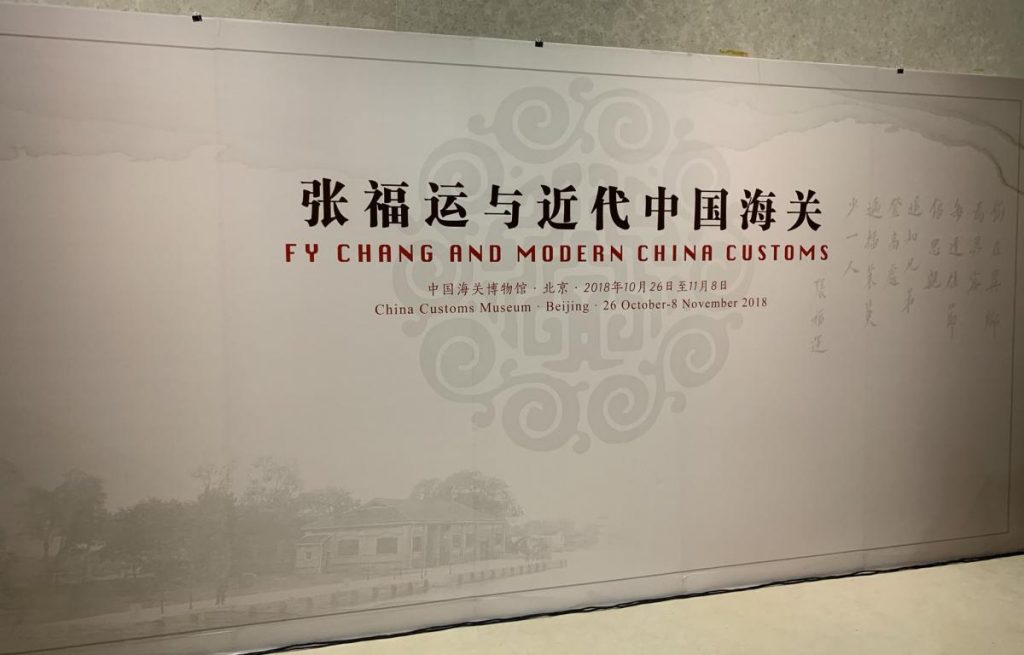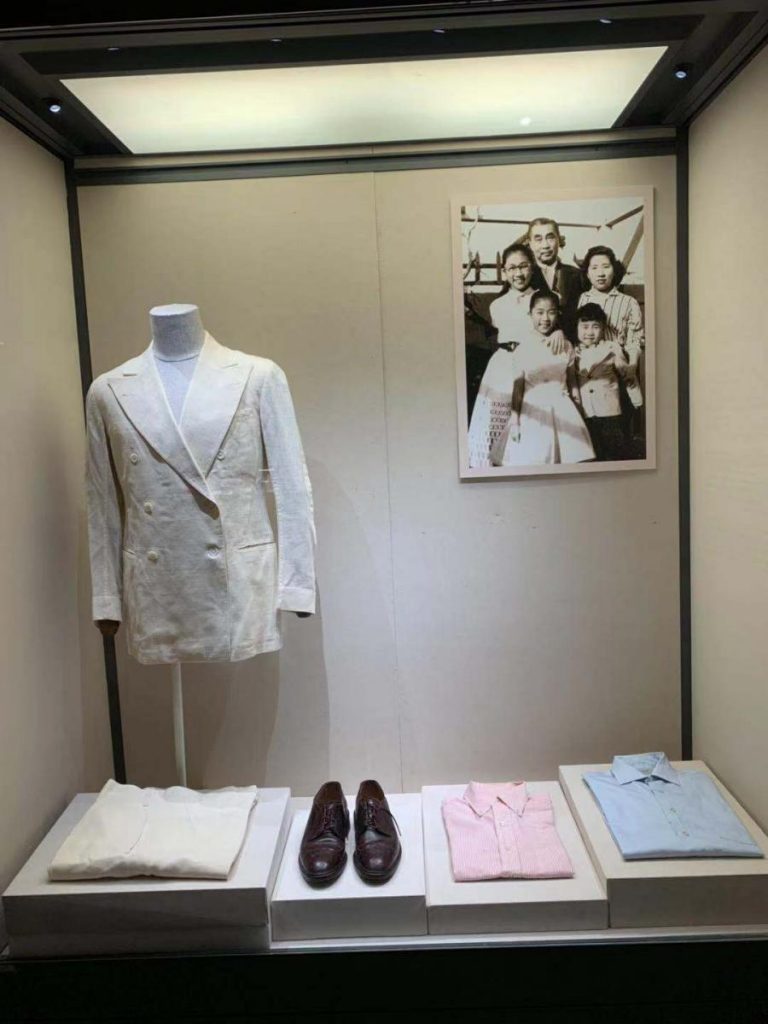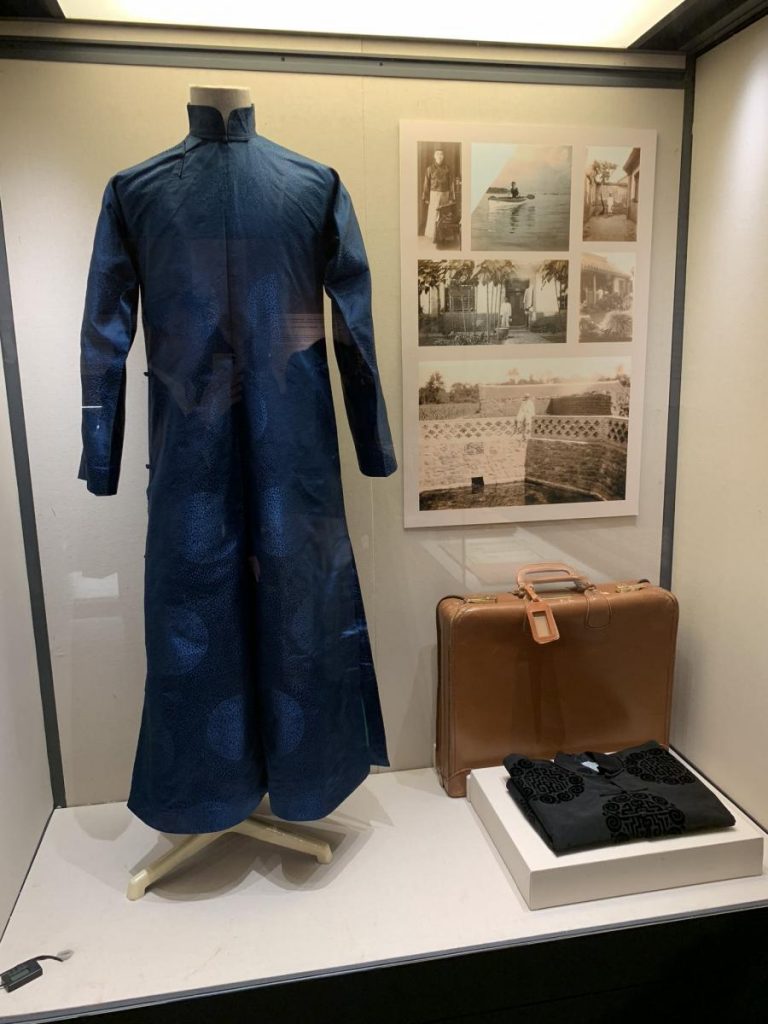In late October, the FY Chang and Modern China Customs exhibit opened at the China Customs Museum in Beijing. The exhibit, sponsored by the museum and co-organized by the FY Chang Foundation, commemorates the 90th anniversary of FY Chang as Director General of the Chinese Customs Service.
Ambassador Julia Chang Bloch, Chang’s daughter and the FY Chang Foundation’s founder, shared remarks at the special opening ceremony that was held at the museum on Friday, October 26.
“The essence of my father’s life was to help China modernize, to reclaim its rightful place on the world stage and to stand up among the great nations as an equal.” Ambassador Bloch said.
“He used his Harvard legal education and expertise to do just that,” She added.
“Today, with this exhibit, I hope the Chinese of this generation will know my father, that he dedicated his life to reform China’s customs service and regain her tariff autonomy.”
The opening ceremony was attended by FY Chang’s family members; Fan Kun, director of the China Customs Museum; and representatives from Peking University, Tsinghua University, the National Museum of China and other institutions.
The exhibit displays pictures, text, clothing and other objects to highlight FY Chang’s life and legacy as a reformer of the Chinese Customs Service. The exhibit is scheduled to last two weeks.
The opening of the exhibit wasn’t the only ceremony highlighting FY Chang’s legacy–the 19th Annual FY Chang Lecture was also held. The FY Chang Lecture is a joint program of Peking, Tsinghua and Harvard University Law Schools honoring Chang.
The program brings together Chinese and American legal scholars and jurists to share knowledge and, in doing so advance respect for the rule of law.
This year’s event was hosted by Tsinghua University Law School and featured professor Wang Chenguang (pictured, left), a Chinese legal scholar at the university. He teaches and researches in the fields of legal theory, comparative law, health law and legislative and judicial systems.
FY Chang was the first Boxer Indemnity Scholarship student to graduate from Harvard in 1914. He was also in the first cohort of Chinese students to attend Harvard Law School, graduating in 1917.
Upon returning to China, Chang joined the Foreign Ministry, took on a number of diplomatic positions, and became President of Jiaotong University in Beijing in 1923.
Chang would later become the Director General of the Chinese Maritime Customs Service. During his tenure, he played a central role in returning customs authority from foreign domination to Chinese control, as well as regaining China’s tariff autonomy. Chang emigrated to America after the founding of the People’s Republic of China in 1949, and his family followed in 1951.




